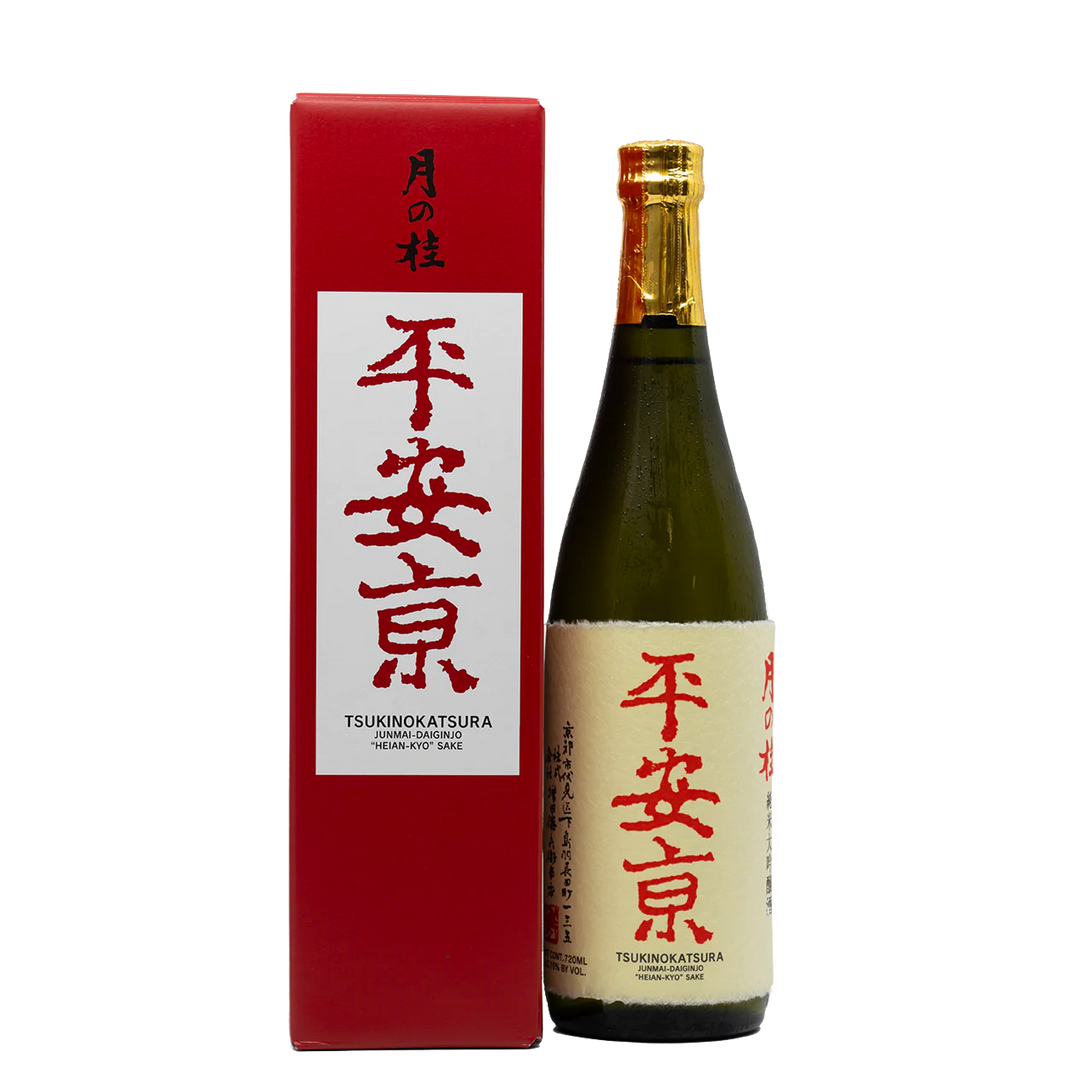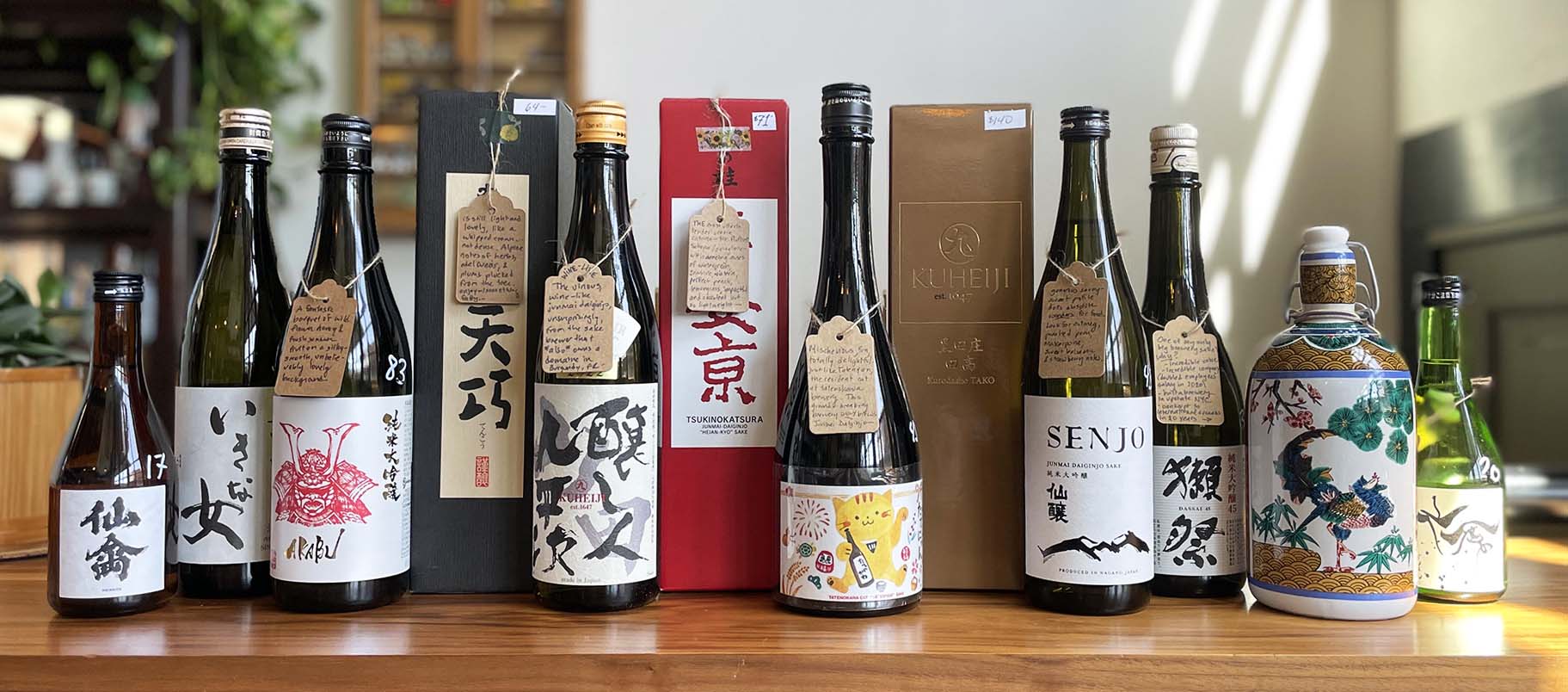
Tsukinokatsura "Heian-Kyo" Junmai Daiginjo
- In stock, ready to ship
Consider the most utterly tender creme catalan-- not as heavy as a creme brulee, just as flavorful and tender-- or the fluffiest sabayon, with dancing herbal muses of wintergreen, jasmine, wisteria, vanilla and lemongrass. Beneath, a core of perfectly-ripe, aromatic peach, mango, and mamey sapote. The finish is utterly smooth and long, coming to a fine dry point. Heian-kyo honors the creamy, tropical notes that are a hallmark of Iwai, but elevates them. The Manolo Blahnik Hangisi of sake, if you will. Poised, classic, equal parts tradition and innovation. Beautiful!
This 50% polish junmai daiginjo is a perfect continuation of the Kyoto Iwai conversation. Heian-Kyo shares so much in common with its 80% polish sibling, while faithfully delivering on the heightened elegance and polish (literally and figuratively) of a junmai daiginjo. The name Heian-Kyo refers to the ancient name for Kyoto: a nod to the history of the brewery's hometown.
Brewery: Masuda Tokubee Shoten
Prefecture: Kyoto (Fushimi)
Rice: Iwai (Kyoto, organically farmed)
Polishing: 50%
ABV: 16%
SMV: +4
Acidity: 1.6
Tsuki no Katsura is a famous, historic brewery with relatively small, local production, utilizing old methods. There are many releases that can only be purchased from the brewery or local restaurants they’ve maintained century-long relationships with. This Kyoto longevity is evident in their brand and style.
Kyoto has a reputation for being exclusive: for instance, after the brewery Tamano Hikari moved from Nara to Kyoto, they weren’t able to sell their sake locally for over 50 years– it all had to be sold outside of Kyoto, because locals wouldn't accept it as their own. In contrast, Masuda Tokubee Shoten, the brewery that sells the Tsuki no Katsura brand, has been domiciled in Kyoto since 1675 and is deeply, thoroughly entrenched in Kyoto culture.
For almost 200 years of the brewery’s life, the Japanese imperial palace was located in Kyoto city. This imperial presence influenced the regional culture, standard of craftsmanship, types of entertainment and industry, quality of cuisine, and so on. The need to serve a royal and noble standard has long been a part of Kyoto’s heritage. To me, Tsuki no Katsura carries a signature of ageless elegance: hidden complexity, seasonal character, commitment to tradition, and subtlety-- much like the city itself.



